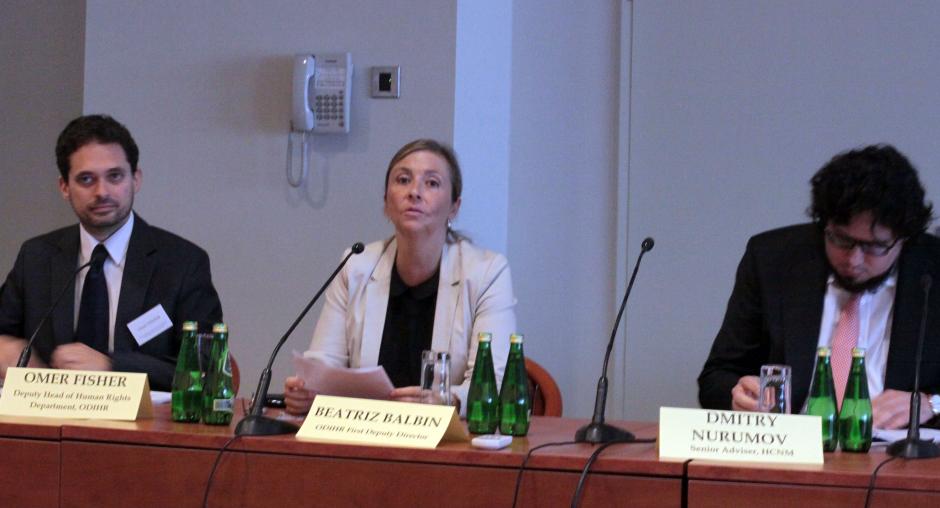OSCE/ODIHR hosts meeting with civil society and international organizations on human rights situation in Ukraine

Identifying needs and possible strategies to address human rights priorities in Ukraine was the focus of a meeting organized by OSCE Office for Democratic Institutions and Human Rights (ODIHR) in Warsaw on 18 and 19 September 2014.
The consultation meeting, with participation of 23 representatives from Ukrainian civil society, international organizations and ODIHR staff, was held as a follow-up to the joint ODIHR-High Commissioner on National Minorities Human Rights Assessment Mission conducted in March and April 2014. The mission report, released in May 2014, outlined a number of serious human rights violations in Ukraine, including documented cases in Crimea.
At the meeting, participants raised concerns about continuing violations of human rights and freedoms in Eastern Ukraine, including unlawful killings, enforced disappearances, torture and other ill-treatment, and attacks on human rights defenders, as well as violations of the rights of internally displaced people and of national minorities by "illegal armed groups".
“ODIHR has the mandate and the expertise to assist participating States in implementing their commitments on human rights,” said Beatriz Balbin, First Deputy Director of ODIHR. “Given the important role NGOs play in promoting respect for human rights, ODIHR is ready to build the capacity of Ukrainian civil society in this area.”
Roman Romanov, Human Rights and Justice Programme Director at the International Renaissance Foundation said: “Human rights violations in Ukraine, in particular in the East of the country, should be documented and investigated, and perpetrators must be held accountable to ensure justice and reconciliation.”
Ukrainian activists and human rights defenders also expressed concern about the armed conflict in the country and the deterioration of the human rights situation in Crimea with violations targeting in particular Crimean Tatars.
“The human rights situation of Crimean Tatars is deteriorating, up to the point that de facto authorities in Crimea are directly interfering with the functioning of the self-government bodies of the Crimean Tatars, which were able to operate for many years,” said Ihor Semyvolos, Head of the Center for Near East Studies.
In light of the existing concerns, the meeting provided a platform to discuss concrete ways in which ODIHR could support Ukraine and civil society there in addressing the current challenges the country is facing in ensuring respect for human rights.
